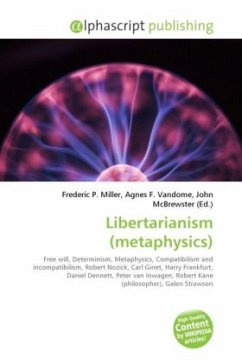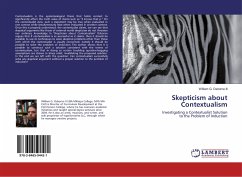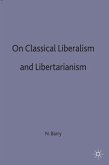High Quality Content by WIKIPEDIA articles! Libertarianism is one of the main philosophical positions related to the problems of free will and determinism, which are part of the larger domain of metaphysics. In particular, libertarianism, along with other incompatibilist positions, argues that free will is logically incompatible with a deterministic universe, but that determinism may be false, and that free will is therefore possible. Although compatibilism, the view that determinism and free will are not logically incompatible, is the most popular position on free will amongst professional philosophers, metaphysical libertarianism is discussed by several philosophers, such as Peter van Inwagen, Robert Kane, Robert Nozick, Carl Ginet, Hugh McCann, Harry Frankfurt, Alred Merle, Roderick Chisolm, Daniel Dennett, Timothy O'Connor, Derek Pereboom and Galen Strawson. The term libertarianism in metaphysical or philosophical sense first was used by late Enlightenment free-thinkers to refer to those who believed in free will, as opposed to determinism. The first recorded use was in 1789 by William Belsham in a discussion of free will and in opposition to "necessitarian" (or determinist) views.
Bitte wählen Sie Ihr Anliegen aus.
Rechnungen
Retourenschein anfordern
Bestellstatus
Storno








